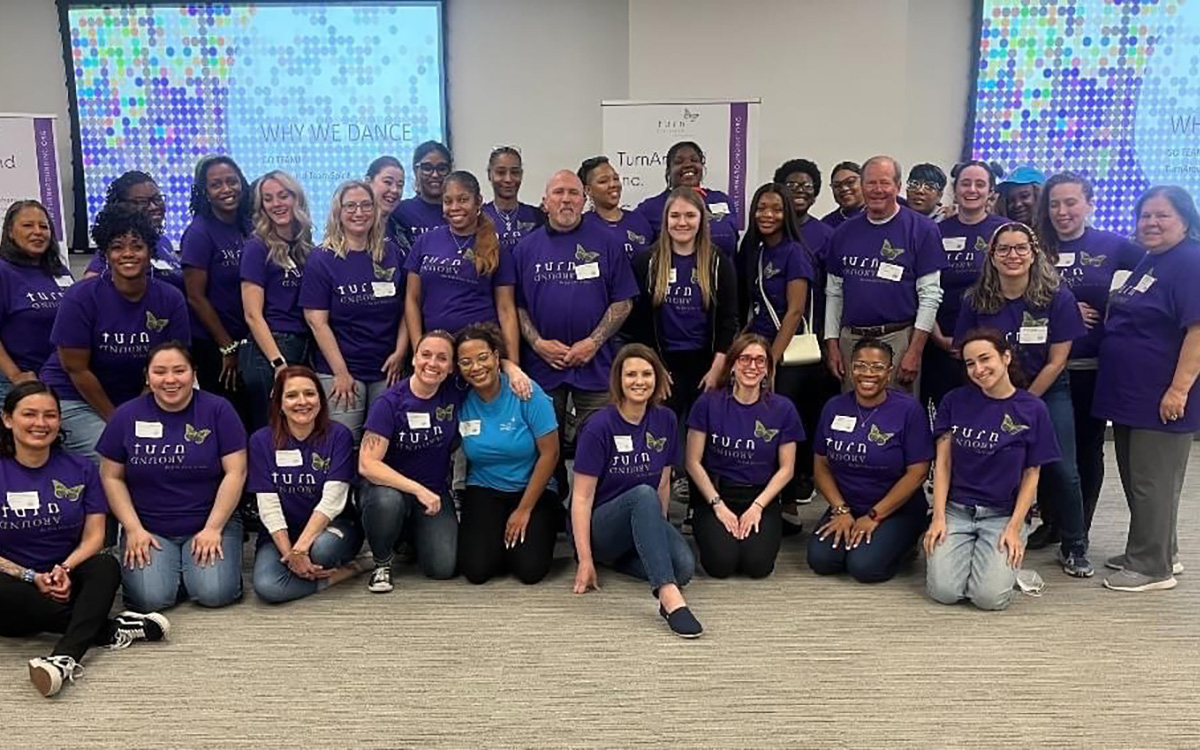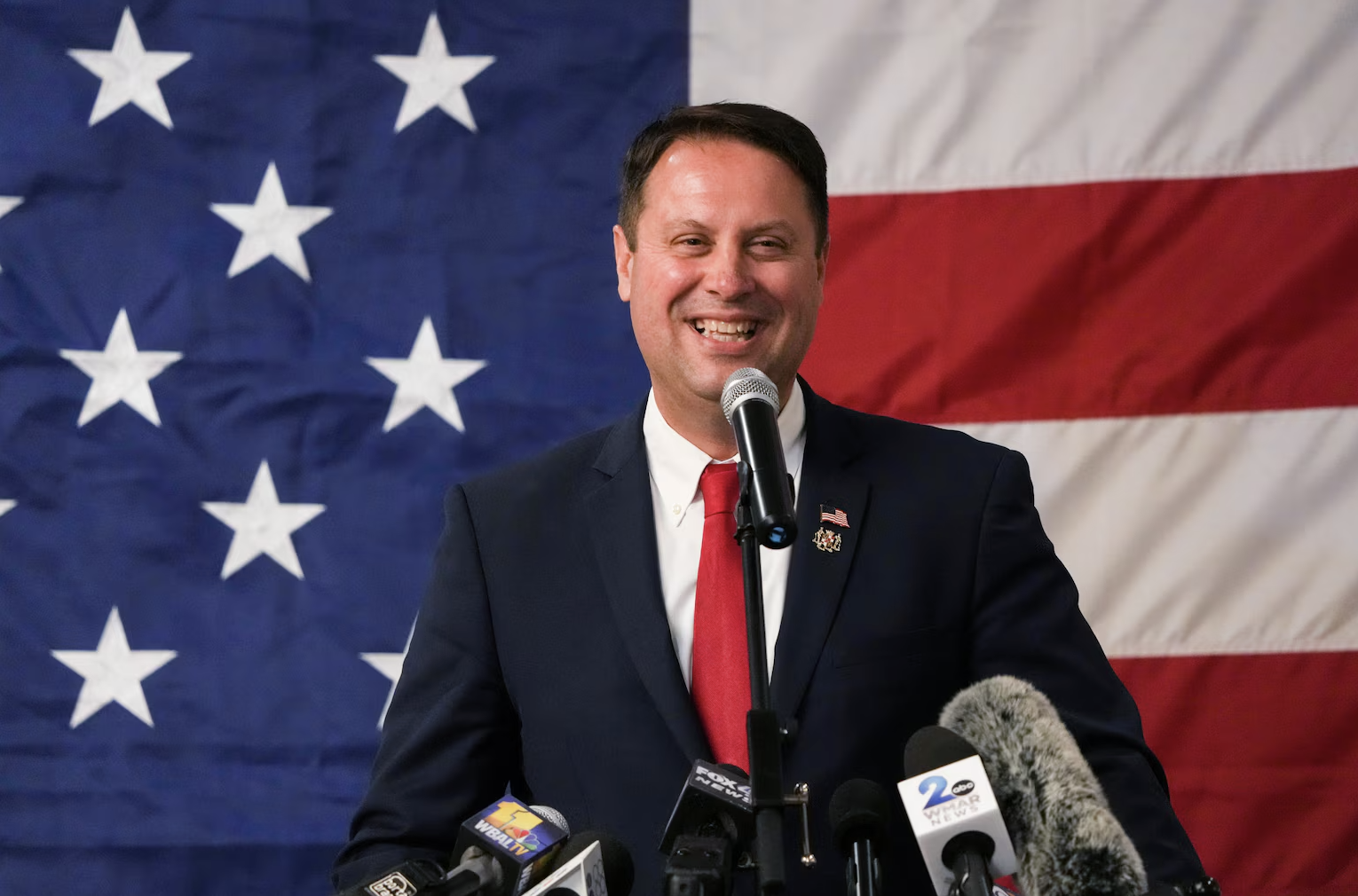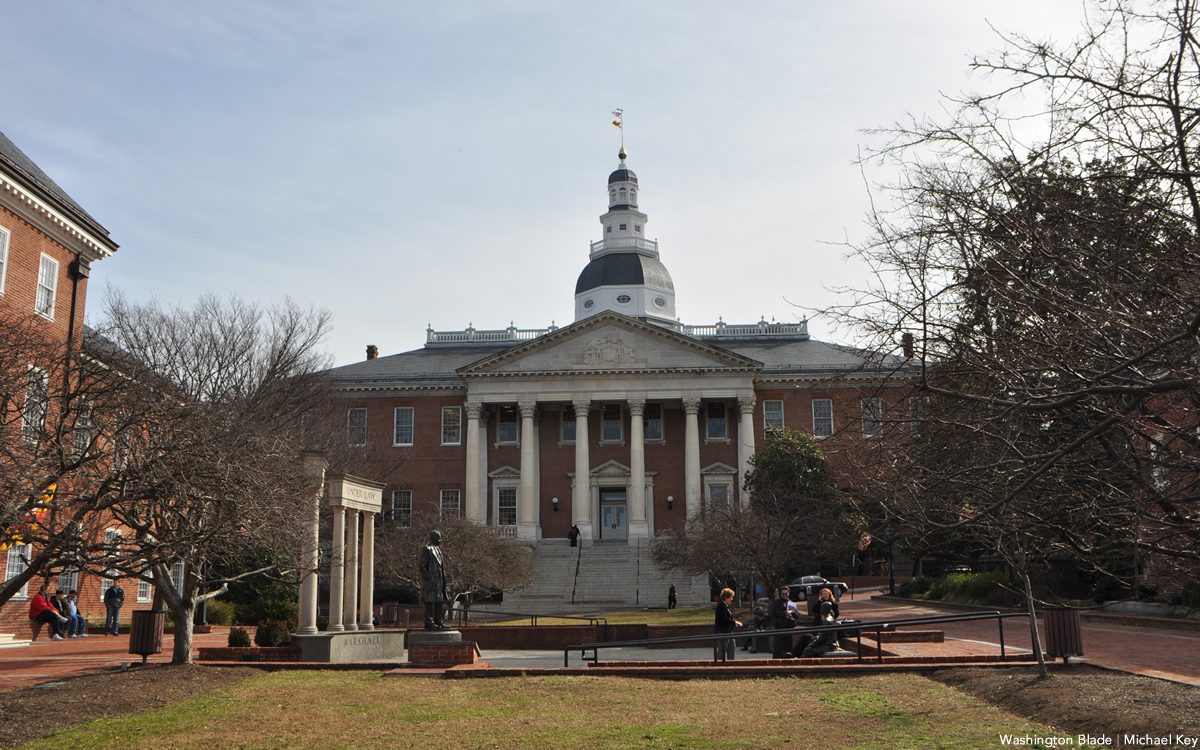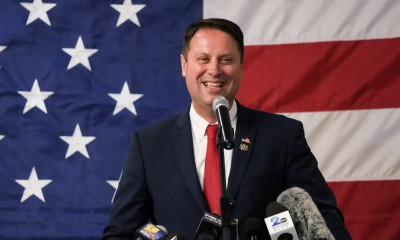Maryland
Turning around sex trafficking: One year after Safe Harbor in Maryland
TurnAround Inc. working to rescue youth, trans girls from exploitation

In 2023, the law in Maryland dictated the following: If a child was discovered to be sex trafficked during a sting operation, they were to be arrested, handcuffed, and then incarcerated as a “child prostitute.” One survivor testified to Maryland lawmakers that after being trafficked throughout College Park from ages 12 to 15, it was their ‘rescue’ by law enforcement that was the most traumatizing part of their experience.
In 40 states and in federal law, the sex trafficking of minors was already understood to be a crime committed against children, and not a crime committed by children. When Gov. Wes Moore signed the Safe Harbor law on May 16th of last year, prohibiting the criminal prosecution of sex-trafficked minors, he brought Maryland out of a legal dark age.
How do things look in Maryland a year later? The Washington Blade got in touch with TurnAround Inc., headquartered in Baltimore, to find out. TurnAround is Maryland’s first provider of comprehensive services to survivors of sexual trafficking, Baltimore’s rape crisis center, and a support center for victims of intimate partner violence and sexual violence.
Perhaps the most striking thing about TurnAround is how large of an operation it is — how large of an operation it needs to be. The organization fielded more than 10,000 calls on their hotline in 2022, conducted almost 4,000 counseling sessions, and placed 337 clients in safe shelter: nearly one for every day of the year. But the staff at TurnAround is relieved to see these numbers so high. During the pandemic, there was a steep decrease in reports of sex trafficking.
“[COVID] had a very chilling effect on the number of trafficking survivors that were getting access to services,” said Amanda Rodriguez, executive director of TurnAround. Many of the avenues through which cases were referred to TurnAround simply shut down. The hospitals were inundated with COVID cases, and so weren’t referring anyone; the schools were closed down, and so weren’t referring anyone; and State Attorney Marilyn Mosby stopped prosecuting low-level crimes, which had the unintended consequence of limiting the opportunities law enforcement had to identify youth at risk of trafficking.
In 2020, TurnAround moved into a new office in downtown Baltimore, and it is cavernous — half the floor of a skyscraper. When you walk in, you could mistake the headquarters for a dentist’s office for how calmly the front desk attendant answers the phone. A few lines here and there give away the seriousness of their work: “Is it OK for us to leave a voicemail?” Not every caller’s phone is a safe place.
The office is flanked by a hallway of therapists on one side of the building, who focus on the inner lives of their clients, and a hallway of advocates on the other side, who focus on their outer lives: support in court, government benefits, direct outreach on the streets of Baltimore. At the center are a host of services one would think spread across the whole of the city: a computer center, a clothing donation center, storage for the goods and products needed to survive while in shelter, a kitchen for group meals, and a place to wash and dry your clothes. But the most sobering part of the office is the play center full of toys, for the children that TurnAround serves. “We have clients as young as three years old,” said Jean Henningsen, senior director of strategic initiatives. Some of these children come in as the dependents of adult survivors, but they are sometimes the victims of sexual violence themselves.
“When we were creating Safe Harbor, we looked to see how many kids had been arrested and charged by law enforcement in every county in the state,” Amanda said. “Baltimore City had the highest number at the time. This has changed since then, and is actually getting much better.” The majority of these trafficked kids were trans girls living in the Charles Village neighborhood of Baltimore — a situation that would surprise many Baltimore residents. Charles Village has a reputation for being one of the safest neighborhoods in the city. It is the neighborhood of Johns Hopkins University, which has, in an effort to assuage the concerned parents of its undergraduates, stationed security officers on many of the surrounding street corners. Despite criticism, the university recently partnered with the Baltimore Police Department to create its own police force, and has started recruiting and training officers as of this spring.
“It’s historically been a safer neighborhood for the LGBTQ community in general,” Amanda said. “I don’t know what spurred more nefarious individuals coming in and exploiting people, other than opportunity. Traffickers are just such master manipulators. They will figure out for anybody what their vulnerability is.” But these nefarious individuals are not part of some transnational crime organization. They are sometimes trans women themselves, trafficking these girls to serve their own needs in the home. Often rejected by their families and in search of community, trans girls find this community among other trans women, and then get manipulated into sexual service.
The procedure for dealing with suspected child sex trafficking in Maryland begins with what are called “Regional Navigators,” a role established by the Child Sex Trafficking Screening and Services Act of 2019. Law enforcement agents and local departments of Social Services will notify the county’s Regional Navigator of a suspected trafficking case, and then this Regional Navigator will put together a Multi-Disciplinary Team, or MDT. The MDT consists of all agents and departments that are involved in or have some stake in the case, including Child Protective Services, Juvenile Services, law enforcement, therapists, and schools. These stakeholders will compare notes on what the youth has told them, since they will often have provided different agents and departments with competing descriptions of what’s going on.
While the MDT procedure is highly effective for inter-departmental coordination on a given case, Stephanie Gonzalez, the Acting Regional Navigator for Howard County, explained that the system has some way to go when it comes to LGBTQ youth. “When we get referrals in general, a lot of times, it’s not mentioned how they identify,” she said. As a consequence, their data on how many LGBTQ youth are being trafficked isn’t always accurate, and these youth sometimes aren’t being handled in ways consonant with their sexual or gender identity. And even when these youth are appropriately identified, they aren’t always able to access the appropriate resources.
“We had a transgender female come to us from another state, and she had been trafficked,” Stephanie said. “We had her in a hotel while we looked for other housing options. We could not find trans-friendly housing options.” The women’s shelters they approached didn’t have the requisite training or resources. They would ask insensitive and irrelevant questions about any surgeries the girl had undergone as part of her transition, or require that she be isolated from other women for their safety. “Why are they trying to make it seem like I’m going to hurt someone,” she would ask.
But that situation is changing. TurnAround has partnered with the YWCA of Annapolis and Anne Arundel County to open up a safe house with the resources needed to support any child survivor of sex trafficking. “It’s built!” Jean said. “TurnAround will be staffing it and running it 24/7. Right now there are no children in the facility. We’re still waiting on the final licensing paperwork from the state.”
The project is expensive, with an estimated running cost of $1.5 million each year. TurnAround has partnered with Femi Ayanbadejo, a former Super Bowl winner with the Baltimore Ravens, to help coordinate fundraising. Ayanbadejo advocates for TurnAround with a deep enthusiasm—hearing him talk on the work they do, it could easily be a field-side interview in the final quarter of a game. “If we can reach five, ten, twenty, thirty, forty thousand people that we wouldn’t have with [the Blade’s] reach, maybe there’s one or two foundations that would give five, ten, a hundred, a thousand, maybe a million dollars. Who knows?”
To learn more about TurnAround’s work, visit their website at turnaroundinc.org. If you or someone you know is experiencing sexual violence, TurnAround has offices in Baltimore City, Baltimore County, and Howard County. All three offices can be reached via 410-377-8111.
CJ Higgins is a postdoctoral fellow with the Alexander Grass Humanities Institute at Johns Hopkins University.
Maryland
4th Circuit dismisses lawsuit against Montgomery County schools’ pronoun policy
Substitute teacher Kimberly Polk challenged regulation in 2024

A federal appeals court has ruled Montgomery County Public Schools did not violate a substitute teacher’s constitutional rights when it required her to use students’ preferred pronouns in the classroom.
The 4th U.S. Circuit Court of Appeals in a 2-1 decision it released on Jan. 28 ruled against Kimberly Polk.
The policy states that “all students have the right to be referred to by their identified name and/or pronoun.”
“School staff members should address students by the name and pronoun corresponding to the gender identity that is consistently asserted at school,” it reads. “Students are not required to change their permanent student records as described in the next section (e.g., obtain a court-ordered name and/or new birth certificate) as a prerequisite to being addressed by the name and pronoun that corresponds to their identified name. To the extent possible, and consistent with these guidelines, school personnel will make efforts to maintain the confidentiality of the student’s transgender status.”
The Washington Post reported Polk, who became a substitute teacher in Montgomery County in 2021, in November 2022 requested a “religious accommodation, claiming that the policy went against her ‘sincerely held religious beliefs,’ which are ‘based on her understanding of her Christian religion and the Holy Bible.’”
U.S. District Judge Deborah Boardman in January 2025 dismissed Polk’s lawsuit that she filed in federal court in Beltsville. Polk appealed the decision to the 4th Circuit.

By PAMELA WOOD | Dan Cox, a Republican who was resoundingly defeated by Democratic Gov. Wes Moore four years ago, has filed to run for governor again this year.
Cox’s candidacy was posted on the Maryland elections board website Friday; he did not immediately respond to an interview request.
Cox listed Rob Krop as his running mate for lieutenant governor.
The rest of this article can be found on the Baltimore Banner’s website.
Maryland
Expanded PrEP access among FreeState Justice’s 2026 legislative priorities
Maryland General Assembly opened on Jan. 14

FreeState Justice this week spoke with the Washington Blade about their priorities during this year’s legislative session in Annapolis that began on Jan. 14.
Ronnie L. Taylor, the group’s community director, on Wednesday said the organization continues to fight against discrimination against people with HIV/AIDS. FreeState Justice is specifically championing a bill in the General Assembly that would expand access to PrEP in Maryland.
Taylor said FreeState Justice is working with state Del. Ashanti Martinez (D-Prince George’s County) and state Sen. Clarence Lam (D-Arundel and Howard Counties) on a bill that would expand the “scope of practice for pharmacists in Maryland to distribute PrEP.” The measure does not have a title or a number, but FreeState Justice expects it will have both in the coming weeks.
FreeState Justice has long been involved in the fight to end the criminalization of HIV in the state.
Governor Wes Moore last year signed House Bill 39, which decriminalized HIV in Maryland.
The bill — the Carlton R. Smith Jr. HIV Modernization Act — is named after Carlton Smith, a long-time LGBTQ activist known as the “mayor” of Baltimore’s Mount Vernon neighborhood who died in 2024. FreeState Justice said Marylanders prosecuted under Maryland Health-General Code § 18-601.1 have already seen their convictions expunged.
Taylor said FreeState Justice will continue to “oppose anti anti-LGBTQ legislation” in the General Assembly. Their website later this week will publish a bill tracker.
The General Assembly’s legislative session is expected to end on April 13.
-

 Virginia3 days ago
Virginia3 days agoMcPike wins special election for Va. House of Delegates
-

 New York5 days ago
New York5 days agoPride flag removed from Stonewall Monument as Trump targets LGBTQ landmarks
-

 Florida5 days ago
Florida5 days agoDisney’s Gay Days ‘has not been canceled’ despite political challenges
-

 Philippines5 days ago
Philippines5 days agoPhilippines Supreme Court rules same-sex couples can co-own property




















